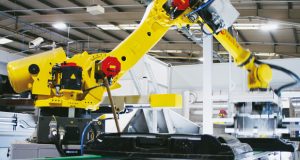
They say that curiosity killed the cat, but in health and safety it’s the absence of curiosity that’s dangerous. The easy thing to do when lagging indicators (like AFRs) tell you what you want is to accept that it’s a direct result of your efforts and sit back, basking in the glow of your success. It’s a truism when people say that just because something hasn’t happened, doesn’t mean that it won’t; 365 days since the last lost time injury (LTI) doesn’t mean 365 days until the next one.
It was this spirit of questioning that led VINCI Construction UK and VINCI Facilities to challenge the business to think again about how it leverages human behaviour to deliver excellence in health and safety. The previous approach was very much focused on safety for our people on the front line, and while its core message to ‘stop, intervene and report’ was sound, it fell short of the needs of the business as it is today.
This led to the development of a new programme called Think Again. It’s a positive message focused around the theme of success through interdependence, recognising that when things go wrong, it’s rarely just because of the behaviour of the injured person – their supervisors, managers and leaders play a fundamental role too. Leadership and management commitment is a key factor in setting context, which is crucial in informing people’s behavioural choices (see Health and Safety Guidance 48 – Reducing error and influencing behaviour).
Analysis of successful outcomes, such as contracts achieving injury-free milestones, usually shows that ‘the force is strong’ throughout the business, from top to bottom and back up again where everyone knows what they’re responsible for and does it. Equally, when things do go wrong, it’s often the case that poor choices were made at all levels, with each actor’s choices having an impact on those around them.
The concept at the heart of Think Again was simple: be clear about our expectations so we can be accountable to each other. The starting point was to define the essential behaviours expected from everyone, regardless of seniority or where they worked (contract or HQ):
- Be aware of the hazards and risks involved in your work
- Always follow the rules and work safely
- Stop and speak up if you can’t do the job safely
- Intervene to stop others from getting hurt
- Share personal experience and knowledge
- Report all injuries, concerns and CCPIs.
Recognising the importance of interdependence and context, we then looked at what we expect from our managers and supervisors:
- Demonstrate compliance is always expected
- Ensure production does not override health and safety
- Be visible and engaging so people see you’re committed
- Praise team members that intervene and stop unsafe acts
- Deal firmly and fairly with poor performance
- Make sure lessons are shared and learning is applied.
And from our leaders:
- Champion health and safety as a personal value
- Encourage your teams to do the same or better
- Promote accountability for safe and unsafe behaviour at all levels
- Be visible – get involved in health and safety
- Provide adequate support and resources for health and safety
- Keep everyone focused on proactively reducing risk exposure.






